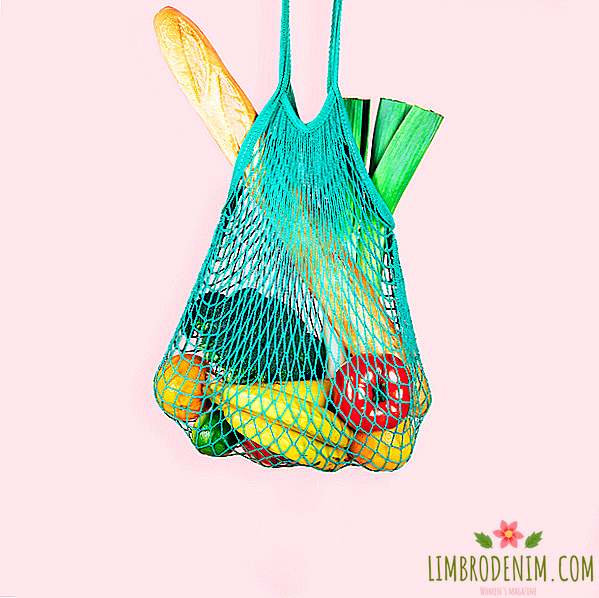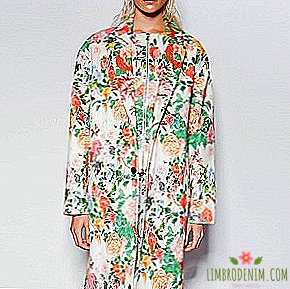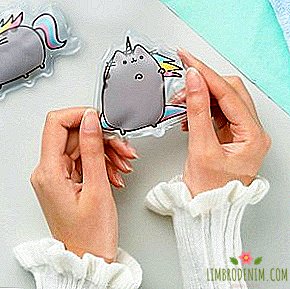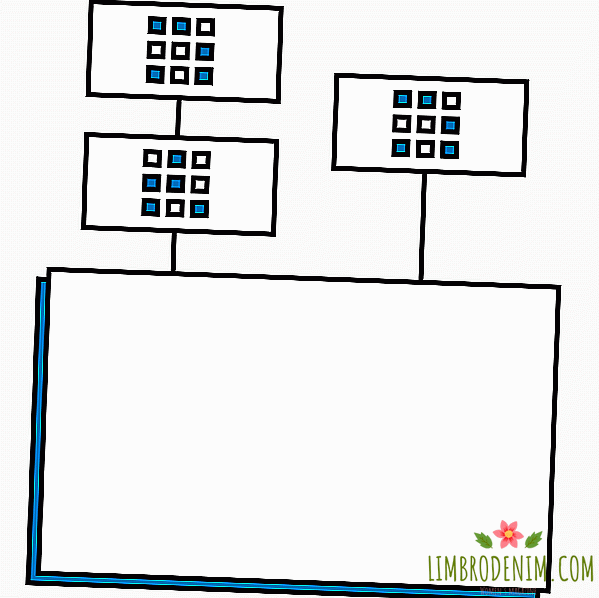A year without shopping: Honest stories about conscious consumption
The topic of informed consumption, of failure from mindless shopping and Caring for the environment recently discussed more and more. Many designers, following Stella McCartney, refuse from fur, the mass market releases collections from recycled plastic and reports on the working conditions of its employees. While ordinary buyers are just beginning to think about the origin of the new T-shirt or jeans, activists are struggling with overproduction and unnecessary purchases by personal example. We talked with five girls who, for various reasons, reduced their purchases or completely abandoned new things - they honestly told about their real experience, mistakes and how the new approach to shopping affects their lives.
Text: Anya Krotikova

Ira Kozlovsky
media department manager Greenpeace Russia
 I try to reduce the amount of garbage - for the year it has accumulated just half a kilo of non-recyclable waste. I decided to start the year without purchases when my new shoes fell apart. In mid-May, I put on a pair that I just bought. In the evening, it was necessary to get from the office at Belorusskaya to the event at Novoslobodskaya. They dug up all the asphalt and changed the tile, it was raining, but my friends and I went on foot and stomped through the mud. After the event, I took a rental bike and drove to the house. It so happened that the shoes died: the fabric was torn at the toes and the sole went away. I was upset, but I realized that things need to be treated more carefully.
I try to reduce the amount of garbage - for the year it has accumulated just half a kilo of non-recyclable waste. I decided to start the year without purchases when my new shoes fell apart. In mid-May, I put on a pair that I just bought. In the evening, it was necessary to get from the office at Belorusskaya to the event at Novoslobodskaya. They dug up all the asphalt and changed the tile, it was raining, but my friends and I went on foot and stomped through the mud. After the event, I took a rental bike and drove to the house. It so happened that the shoes died: the fabric was torn at the toes and the sole went away. I was upset, but I realized that things need to be treated more carefully.
I decided on a radical challenge to limit myself to shopping and learn to carefully use what is now. And it also became interesting: will it be possible to live the whole year with the installation, that I have everything, and not to buy either a notebook or a dress. I immediately decided that during the year I could only buy food, drinks, medicines, minimal cosmetics and household chemicals, that is, soap, shampoo, toothpaste and washing powder. Conventionally, I can buy tickets for a vacation, pay for a visa and a hotel, but I will not bring souvenirs.
On the very first day of the challenge, I opened the bottle of cider with a key and broke it - I had to make a new one. On vacation, there were problems with booking a home, so I had to buy a local SIM card to get through to the landlady.
Of course, there were situations when, under normal conditions, I would go and buy a new thing. For example, in Georgia, charging for the iPad stopped working. The first thing that came to mind: "Buy a new one." But I remembered the year without purchases and began to deal with the cord: for about ten minutes I turned it in different directions in search of the position in which it was charging. She felt like a nurse who could not find a vein in a patient and put on an IV. Under the wire, put the tire out of the folded T-shirt, and the charge went. When I returned to Moscow, I wrote in a blog that I was looking for exercises, and a friend gave me an unnecessary one. It turned out that sometimes things can just be asked, and they appear themselves.
Two months have passed my experiment, and I still think that I have everything. I work in the Moscow office of Greenpeace, we have a regiment in the corridor "I will give it for nothing." We bring there and put unnecessary things in good condition and take what we liked. I recently picked up a book about personal effectiveness and a sketchbook that I use for lettering exercises. I read books by subscription to Bookmate, sometimes I take it in the library named after Dostoevsky. I rent a bicycle at the Velobike stations - they are near the house and around the work. New dress, of course, I want to - recently took a dress on a swap.
My style of dressing has also changed. It all started with the book Marie Kondo. I disassembled the wardrobe, first of all I cleaned all the duplicate things, then those in which I feel uncomfortable or who have not worn for a long time. Now my wardrobe is compact, and all clothes are my favorite. I rarely spend time thinking in front of a mirror. All I have is sitting on me well. I just take my favorite jeans, my favorite shirt, my favorite sneakers, tie my hair in a bun, cling to my favorite brooch - and go to work.
Waste, of course, has become less. And free time - more, because it does not need to spend on shopping. I buy fruits, vegetables, dairy products and bread around the house, once a month I go to Auchan for cereals and loose goods (tea, coffee, sugar). And that's it! Save money I save for vacation - I want to go to Taganai in the summer.
I read a lot on the topic of zero waste and reasonable consumption. In Russian - blogs of Anastasia Prikazchikova and Anna Chernykh. In English, Bea Johnson, the founding mother of the international zero waste movement, and Lauren Singer, the "zero waste" lifestyle princess from New York. In instagram it is subscribed to #plasticfree #zerowaste hashtags and a few similar ones. Listen to podcasts from theminimalists.com.
The top and most recent information I often find out from Greenpeace International on Twitter - they provide links to interesting articles that are published, for example, in The Guardian and the BBC. I myself lead instagram @zero_waste_ira, where I talk about an eco-friendly and waste-free lifestyle.
Friends of my challenge were treated with enthusiasm and understanding, they also wonder what will come of it. This is generally a funny thing: you refuse something and wait for what to get in return. Maybe some kind of spiritual experience, new acquaintances, money saved - well, or shoe care skills.
Tonya Arno
yoga teacher
 I can not say that I completely refused to buy things - yet I buy, but much less and more consciously than ever. I thought about what I was consuming for a long time, especially when I watched several films about the mass market and the history of things. Of course, second-hand, swaps and charity-markets motivate to avoid purchases in principle. I never throw things away; they go on with their lives and travel around girlfriends or swaps.
I can not say that I completely refused to buy things - yet I buy, but much less and more consciously than ever. I thought about what I was consuming for a long time, especially when I watched several films about the mass market and the history of things. Of course, second-hand, swaps and charity-markets motivate to avoid purchases in principle. I never throw things away; they go on with their lives and travel around girlfriends or swaps.
Now I am still reducing the number of items purchased. It is generally given to me easily, but there are items that I don’t understand how to refuse to buy, or I don’t even want to. For example, underwear or perfect winter shoes. I am a vegan and do not use fur, skin and wool in clothes, so it’s already quite difficult for me to find something worthwhile, pretty and durable.
Most often, I buy things in second-hand shops, find them on swaps or charity markets, flea markets and flea markets. If I don’t like anything, I really need something specific and I’m in the store, I can make a purchase. In my opinion, it is always worthwhile to preserve the sobriety of reason. It is much more important to disseminate information benevolently and gradually, and not aggressively pushing what a good fellow you are, now wear only jeans. In this regard, I really like Laura Singer.
Sometimes it seems to me that with the advent of swaps, I began to change wardrobe more often and it’s easier to part with old things. My style also changed a little and became more basic. Spending remains the same: I, as before, can buy an expensive item that I will wear for many more years. But the quality of shopping has become much better. I can always give these things to my friends for sure, and they, for example, to a swap. More often than not, I don’t even have time to post my things on the market, they are immediately picked up by girls I’m familiar with.

Larisa Petrakova
founder of the store Zero Waste Shop
 I have two children, and at some point I realized that I constantly have to buy something: now new clothes, now for kindergarten, then office. It became annoying to me: it took a lot of time to buy, even if it was done online. I myself have always had a little clothes, and I never bought a lot. But in trying to save money, I acquired cheap clothes that quickly lost their appearance, which did not please me either. Once I saw a “zero waste” video on the Internet and realized that this theory solves all my problems of buying and using things.
I have two children, and at some point I realized that I constantly have to buy something: now new clothes, now for kindergarten, then office. It became annoying to me: it took a lot of time to buy, even if it was done online. I myself have always had a little clothes, and I never bought a lot. But in trying to save money, I acquired cheap clothes that quickly lost their appearance, which did not please me either. Once I saw a “zero waste” video on the Internet and realized that this theory solves all my problems of buying and using things.
I did not try to immediately abandon the purchases of the new. After all, it should not be just some kind of challenge - it should become a way of life. I do everything gradually, getting used to the "zero waste" in stages so that such a life does not become a burden for me.
Of course, there are categories of things that you cannot refuse to buy. For example, clothes for themselves and for children, toys. But you can greatly reduce the number and choose only natural materials. Now I consider all purchases from the “zero waste” point of view: first of all, the materials should be natural or at least recyclable.
Now I buy things and clothes in different ways. If I can plan in advance when and what thing I will need, then I look for on Avito or in other places where you can buy used things. If there is no time to search, then I buy the highest quality thing that I can afford.
Of course, there are exceptions. For example, it suddenly turns out that the child has grown up and it is necessary to urgently buy a replacement item, but there is no time to go somewhere - in this case I can buy in the nearest store. But at this moment I am not upset, but, on the contrary, I remember that I have already greatly reduced consumption and, accordingly, waste.
My style has not changed. An oversize is now in fashion, which makes it possible sometimes to wear things of a husband: T-shirts and hoodies. In general, I rarely bought clothes for myself, but now I buy even less often. And with a limited wardrobe, I find it even easier - in the mornings it’s not long to think what to wear.
Spending, according to my feelings, became much less. Previously, I could buy a thing, because I just really want and like. Now I don’t even think whether I need it or not - but I immediately understand that I don’t need a thing (unless it is a replacement for a broken essential item). The difference in costs is obvious, because home appliances or clothing usually cost a lot.
I read a lot of different blogs and social networks on the topic of conscious consumption and ecology. I can recommend the book "Zero Waste Home" Bea Johnson - in the book there are answers to any question about reducing waste.
Olesya Besperstova
founder of the project No Plastic Is Fantastic
 I have always been calm towards shopping and have not dreamed of expensive branded items. Twelve years ago I moved to St. Petersburg and began to frequently change removable apartments — in order not to carry suitcases and bales of clothes, I tried to resell things and less often buy new things.
I have always been calm towards shopping and have not dreamed of expensive branded items. Twelve years ago I moved to St. Petersburg and began to frequently change removable apartments — in order not to carry suitcases and bales of clothes, I tried to resell things and less often buy new things.
A couple of years ago, I began to travel more often to Asia and became fascinated with ecology. Probably, it was then that I revised my attitude towards "material values", and for the first time I learned about the "zero waste" movement. In Indonesia, I watched the film “Home: A Date With a Planet” - it is about how certain industries affect the Earth. A lot of attention in the movie was given to fashion. Later I saw in social networks the "who made my clothes" actions, where factory workers talk about their work. All this hooked me up - it became important for me where this or that thing came from, who produced it and from what.
I quickly realized that the best way was to wear those things that someone had previously had and did not fit or tired. Itself began to carry things into containers "Thank you", and completely dilapidated to pass in recycling. At that moment I realized that things occupy a huge space in our lives - especially because of the fast fashion. A year ago, I set up an experiment and decided to abandon the purchase of new things, with the exception of underwear or tights.
It was not unusual for me - I used to go to the flea markets or buy things at Avito before. Now I am especially pleased with the search for things on the markets in different countries - I am pleased to realize that these are objects with a history. Among these treasures is a cross between a kimono and a suit made of very soft fabric. He was given completely crumpled for 200 rubles, and at home it turned out that it was Yohji Yamamoto.
On trips I like to go to charity shops, I use social sharing groups on social networks, I go to vintage stores. In St. Petersburg, I like Pif-Paf. Its founders recently held in the city of the festival Big Resale Weekend.
Of course, at first it was unusual: if something in the wardrobe is lacking, you have to think how to get it. This is further complicated by the fact that I wear a small size. Sometimes force majeure situations occur - for example, an event with a dress code. Here friends come to the rescue. Generally, taking on time is a great solution. I recently traveled to Latvia, and I needed a sleeping bag and a tent. I wrote about it on social networks, and a friend lent me a complete travel kit.
Money began to leave much less. Prices in the same charity shops are simply ridiculous: you can buy a sweater for the price of a cup of coffee in a Moscow cafe. Now I put priorities in a different way and spend money on emotions: traveling out of town, traveling, meeting friends.
My style began to change not from the reduction of purchases, but because I am growing up and changing internally. Minimalism is close to me, and I don’t consider clothes as a way to express myself. For me, things are a function. Recently, I often go out of town, and it is important for me that the clothes should warm, not let moisture, be comfortable to the body. And, of course, I don’t want to wear the thing that a 13-year-old girl sewed in a stuffy room.
I read several accounts on recycling and fast fashion instagram and I myself try to promote the topic of environmental friendliness and conscious consumption in No Plastic Is Fantastic. The amount of things we are used to is not necessary. For a happy and comfortable life, a minimum is enough.

Olga Kib
owner of "Lancheria"
 At some point, I began to sort out the garbage and realized that the amount of plastic that I have left is already beyond evil. Then I decided that I could buy products at the farm fair for a week, clothes and cosmetics from me, and so full, so I can try to live by the principle of "zero waste". Perhaps this is how to quit smoking or start playing sports. At some point you can no longer otherwise.
At some point, I began to sort out the garbage and realized that the amount of plastic that I have left is already beyond evil. Then I decided that I could buy products at the farm fair for a week, clothes and cosmetics from me, and so full, so I can try to live by the principle of "zero waste". Perhaps this is how to quit smoking or start playing sports. At some point you can no longer otherwise.
Now I practically do not buy anything. Mom gives me something, although I ask her not to do it, and some things are given to her friends. While it is impossible to refuse to buy shampoo. I looked a lot of recipes, but my hair does not want to live on the principle of "zero waste". I replaced all the cleaning products with soda and vinegar; it turned out to be easy to make toothpaste myself. Everything else can be replaced with an analog without plastic or reusable things (the same cosmetic discs or pads).
In general, when you are thirty-one, you as a whole should already be full of everything. In "Lancheria" on "1905", as well as in our past institutions, we arrange markets, we will soon organize a swap.
I live on ten thousand rubles a month. Zero waste is the best thing you can do to save money. If you do not want to buy anything in plastic, then in general you will not buy anything. And everything that is not packed is likely to be cheap. Of course, there are subtleties with olive oil or with some types of cereals, but in general you are in the black.
True, I'm going to Berlin the other day. There, I’ll definitely buy myself jeans in Weekday - this brand is not famous for its environmental friendliness, but I allowed myself this one cheap and simple thing that suits me.
Those close to my lifestyle react differently. Dad laughs at me in a voice. All friends also make fun, but they themselves have already stopped buying everything in plastic.
Photo: asife - stock.adobe.com, Alexey Eremeev - stock.adobe.com, Khvost - stock.adobe.com, picsfive - stock.adobe.com




